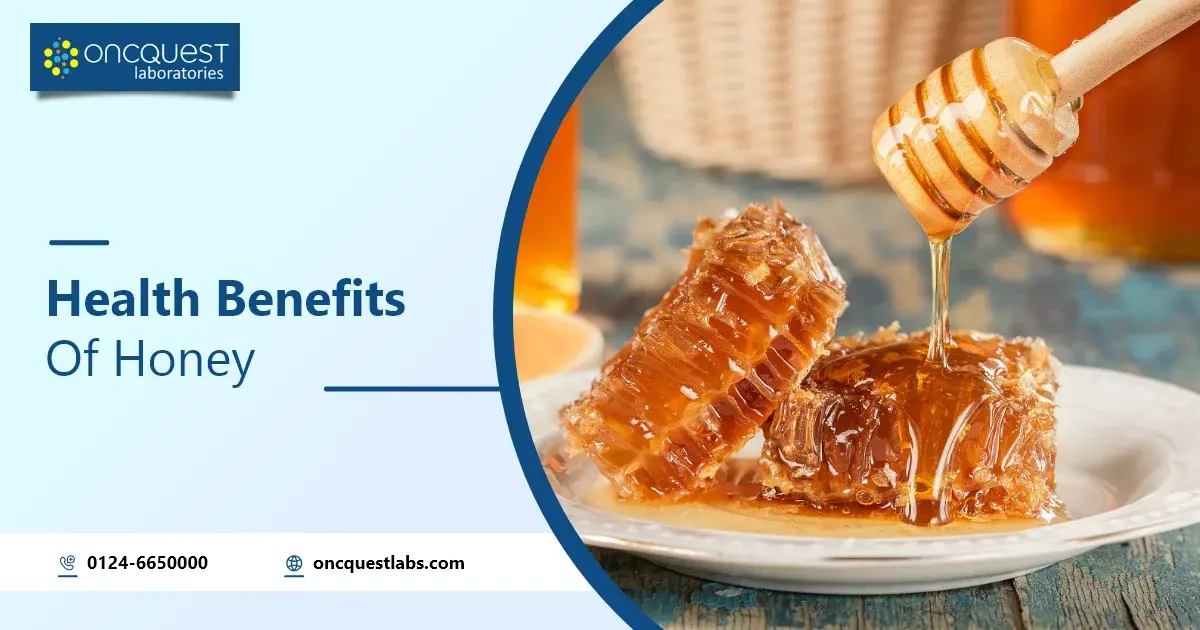In the world of natural sweeteners, honey is like a timeless treasure. It’s not just a tasty sugar alternative; it’s been celebrated for its health benefits for centuries.
Think of honey as more than just a sweetener – it’s a golden elixir packed with good stuff. Beyond its yummy taste, honey is loaded with nutrients, antioxidants, and medicinal properties that people have appreciated throughout history. Whether it was ancient societies using it to heal wounds or modern nutrition experts praising its goodness, honey has become a go-to remedy and a kitchen must-have.
This blog is here to uncover the secrets of why honey is so good for your health. We’ll explore its nutritious makeup, how it helps our immune systems, and the many ways it contributes to our well-being. Come along on this journey through the amazing world of honey, where we’ll discover the science and traditions that make honey not just a tasty treat but a powerful friend on our quest for a healthier life.
Contents
Honey: Nature’s Sweet Gift
Honey is a delicious and sweet liquid made by bees. Bees collect nectar from flowers, and then they mix it with special things in their mouths. After that, they put the nectar into honey combs in their hives. Inside the hive, the nectar turns into honey because of the bees’ hard work.
What makes honey special is that it’s not just sweet – it’s also good for you! It has tiny bits of things that are good for your body, like vitamins and antioxidants. People have been enjoying honey for a really, really long time because it tastes great, and it can even help with things like soothing a sore throat.
So, in simple words, honey is a sweet and natural treat that bees make, and it’s not only yummy but also has some good stuff that can be good for our bodies.
Health benefits of Honey
Honey isn’t just a sweet treat; it’s a natural elixir with some cool health benefits:
- Nutrient Boost: Honey has good things like vitamins and antioxidants that can help keep your body healthy.
- Healing Power: It’s not just for eating! Honey has been used for ages to help heal wounds because it has special things that fight germs.
- Soothing Sweetness: Got a sore throat? Honey can be like a cozy blanket for your throat – it’s known for calming coughs and irritation.
- Immune Support: The antioxidants in honey may lend a hand to your immune system, helping your body stay strong.
- Happy Tummy: Honey can be friendly to your stomach. It has prebiotics that help the good bacteria in your gut.
- Energy Boost: Need a pick-me-up? The natural sugars in honey give you a quick energy boost, way better than sugary snacks.
So, enjoy honey not just for its sweetness but for the sweet things it does for your health!
How to choose right honey
Choosing the right honey involves a bit more than just grabbing the first jar off the shelf. Here’s how to make sure you’re getting the good stuff:
- Look for Raw Honey: Raw honey is unprocessed and keeps more of its natural goodness. Look for words like “raw” or “unprocessed” on the label.
- Check the Source: Different types of honey come from different flowers, giving them unique flavors. If possible, know where your honey comes from – it could be clover, orange blossom, or even manuka.
- Color Matters: Honey comes in various colors, from light to dark. Lighter honey is usually milder in flavor, while darker honey tends to have a stronger taste. Choose based on your preference.
- Consistency Counts: The texture of honey can vary. Some are smooth, while others are more crystallized. Neither is better; it’s about what you like. If you prefer it more liquid, go for a smooth one.
- Check the Ingredients: Real honey doesn’t need much – it’s sweet on its own. Avoid honey with added sugars or preservatives. The ingredient list should be simple: just honey.
- Go for Local Honey: Local honey isn’t just a trendy choice; it might also help with allergies. Some believe that local honey can expose you to small amounts of local pollen, potentially reducing allergy symptoms.
- Consider the Container: Honey is best stored in glass or food-grade plastic containers. These materials maintain the quality of the honey over time.
- Read Labels Carefully: Understand any certifications or labels. Phrases like “organic” or “100% pure” can give you more insight into the honey’s quality.
Remember, the right honey is the one you enjoy the most. So, take your time exploring different types and savoring the unique flavors until you find your perfect match!
Who should not eat honey?
While honey is generally considered safe for most people, there are certain groups who should avoid or be cautious about consuming it:
- Infants Under One Year Old: Honey can sometimes contain spores of a bacterium called Clostridium botulinum, which can be harmful to infants. Their digestive systems are not mature enough to handle these spores, leading to a rare but serious condition called infant botulism. It’s recommended to wait until a child is at least one year old before introducing honey.
- People with Bee Pollen Allergies: If someone is allergic to bee pollen, they may also experience allergic reactions to honey. While it’s uncommon, it’s advisable for individuals with pollen allergies to be cautious when trying honey for the first time.
- Those with Fructose Intolerance or High Blood Sugar: While honey is a natural sweetener, it contains fructose and glucose. People with fructose intolerance or those trying to manage high blood sugar levels should consume honey in moderation, considering its natural sugar content.
- Individuals with Certain Medical Conditions: People with certain medical conditions, such as diabetes or other metabolic disorders, should monitor their honey intake as part of their overall dietary management. Consulting with a healthcare professional or a nutritionist is advisable.
- Those at Risk for Botulism: Individuals with compromised immune systems or certain medical conditions that increase the risk of botulism should exercise caution with honey consumption. In these cases, it’s essential to consult with a healthcare provider.
As with any dietary concerns, it’s recommended to seek personalized advice from a healthcare professional, especially if there are specific health conditions or concerns.
Conclusion
In summary, honey is more than just a tasty sweetener – it’s like a natural superhero for our health. It’s packed with good stuff like nutrients and things that help our bodies heal and feel better.
When picking the right honey, think about things like if it’s raw, where it comes from, and its color and texture. Local honey might even help with allergies.
But, we need to be careful – babies under one year old should avoid honey, and if you’re allergic to bee pollen or have certain health conditions, it’s smart to talk to a doctor before eating a lot of honey.
So, as we enjoy the deliciousness of honey on our toast or in our tea, let’s remember the old traditions and science that make honey not just yummy but also good for our health. It’s like a golden magic potion that adds sweetness to our lives while keeping us feeling good.
Frequently asked Questions
Q1: Is a spoonful of honey a day good for you?
A1: Yes, a spoonful of honey a day can offer potential health benefits due to its antioxidant properties, immune system support, and soothing effects. However, moderation is key as honey contains natural sugars, and individuals with specific health conditions should consult with a healthcare professional before incorporating it into their daily routine.
Q2: How much honey is safe daily?
A2: For most adults, consuming 1 to 2 tablespoons of honey a day is considered safe and may offer health benefits. However, moderation is important due to its natural sugar content, and individuals with health conditions like diabetes should consult with a healthcare provider for personalized advice.
Q3: Is honey 100% safe?
A3: While honey is generally safe for most people, it should not be given to infants under one year old due to the risk of infant botulism. Additionally, individuals with bee pollen allergies or specific health conditions should exercise caution and seek advice from a healthcare professional.
Q4: Does honey expire?
A4: Honey is known for its remarkable shelf life and does not spoil. Archaeologists have even found pots of honey in ancient Egyptian tombs that are thousands of years old and still perfectly edible. While honey may crystallize over time, this process is natural and reversible by gently warming the honey.
Q5: How do I know the original honey?
A5: To identify original honey, look for raw or unprocessed options, check the source and region of production, and prefer honey labeled with certifications like “100% pure” or “organic.” Original honey often has variations in color and texture, and purchasing from trusted local beekeepers can enhance the chances of getting a genuine product.





